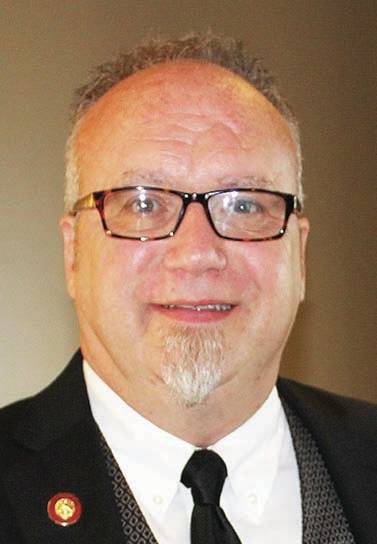Generation Z, the post-Millennials
Published 6:01 am Saturday, June 30, 2018
As a person who has worked in colleges around the country for decades, I am teaching a class in communication this summer at Edison State Community College. I recently asked my students what they expect from their first job once they complete their degrees.
Eighty percent of the students in the class are post- Millennials and in no way resemble what Greek philosopher Socrates (470-399 BC) indicated as he philosophized about the youth of his time, “The children now love luxury. They have bad manners, contempt for authority; they show disrespect for elders and chatter in place of exercise.”
The 2016 research from the Annie E. Casey Foundation found that post-Millennials have lower teen pregnancy, less substance abuse, and higher on-time graduation from high school than did the Millennials. And for those who have not been paying attention to demographics, only about 54 percent of this group is non-Hispanic white.
Generation Z, the post-Millennials, have always lived in a world of connectivity: books and movies on demand, research done not in libraries but on the Internet from wherever they are, Skype that allows them, via their iPhones, to see and talk directly to friends and relatives all over the planet.
Their use of electronic devices may be troublesome to some, and according to the July 2, 2018, edition of Time, the World Health Organization’s disease-classification manual has added “gaming disorder” to its new edition and “characterizes it as a pattern of prioritizing online games or video games to the point of ‘significant impairment in personal, family, social, educational, occupational or other important areas of functioning.’” This technology, however, has more benefits than problems — at least for most.
I want to share with you what some of my post-Millennial students — whose career paths take them in directions from law enforcement to nursing to journalism — recently indicated they expect from their first jobs after college:
• Megan Booker wants opportunities to learn, to grow with educational opportunities. She wants the more experienced nurses as well as doctors to be willing to teach her new things.
• Kira Smith agrees with Megan but also wants that job to be a place where she can mentor, help others learn and grow as well. She envisions it as a place that will be a stepping stone that will give her the tools to excel in her career.
• Tim Hanna indicates that in his field of journalism, he wants to make connections with a wide variety of people so that he can put his name and his product in different markets and open more windows of opportunity.
• Another student wants her mentors to teach her well so that her patients will see compassion, empathy, and patience in her. She wants to help save lives, take care of people.
• With a major as a physical therapy assistant, another student, who prefers to remain anonymous, believes her initial job will be intimidating and will probably be with the elderly as her first choice. She expects to have close relationships with her patients as they work to become more mobile without pain. She expects that she will be heartbroken as they pass away. She is sure she will learn more in her first job than in any classroom, but the classroom will prepare her for entry into that first job.
• As a law enforcement major, Ericka Powell wants to learn the basics and improve on those to get better and better as she recognizes certain situations and uses her critical thinking skills to deal with them. A part of this, she asserts, is learning about criminal behavior, the stories of criminals and why they do what they do.
Two of my students this summer are categorized by the Pew Foundation as General X. Their sense of their next jobs after graduation is both pragmatic and idealistic:
• One of these from Generation X wants a job with health insurance and retirement benefits as well as a “grown up” paycheck. Her long-term goal is to be a tax attorney, and with accounting as her first degree, she is on her way.
• Deanna Gilbert hopes that her study of psychology and sociology will give her the tools to counsel veterans, prison inmates, and those who suffer from physical and/or mental abuse.
As I left class on the day my students shared their sense of their first jobs after graduation , I felt optimistic. We had just begun a career unit, and they seemed eager to use tools to verify their choices, locate jobs around the country and abroad for which they will be qualified, and initiate all the stages essential to throwing their hats in the ring once they graduate.
Dr. Vivian Blevins is a Harlan County native. She has taught undergraduate and graduate students as well as prison inmates, and now teaches communication and American literature classes at Edison State Community College in Ohio. Reach her at vbblevins@woh.rr.com.






